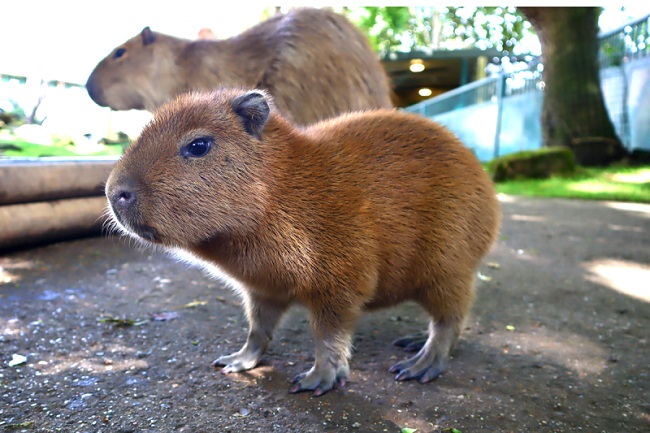The capybara, known as the world’s largest rodent, is native to South America. Characterized by their social, playful nature and distinctive appearance, capybaras have gained attention as exotic pets.
However, owning a capybara pet is not for everyone, and potential owners must consider various factors, including legality, ethical issues, and the specific care requirements these unique creatures need.
This article provides a deep dive into what it means to have a capybara as a pet.

The Legality of Owning a Capybara Pet
Before getting a capybara, it’s essential to understand the legal implications. Owning a capybara pet is not legal everywhere.
Read Also:
Laws and Regulations
In the United States, laws regarding exotic pet ownership vary by state. Some states allow capybara pets with specific permits, while others ban them entirely. Potential owners must research their local laws and obtain necessary permits if needed.
Ethics of Capybara Pet Ownership
Beyond legality, ethical considerations should also play a role in the decision to get a capybara pet.
Wildlife vs. Domestic Life
Capybaras are wild animals accustomed to a life in vast, natural habitats. They are highly social creatures, often living in large groups. Potential owners must consider if they can replicate the social and environmental conditions a capybara would experience in the wild.
Frequently Asked Questions about Capybara Pets
Potential capybara owners often have several questions. Here, we answer some of the most common ones.
What Do Capybaras Eat?
Capybaras are herbivores, eating a diet primarily of grasses and aquatic plants. In captivity, they can be fed hay, vegetables, and specialized rodent pellets.
How Much Space Do Capybaras Need?
Capybaras require a large outdoor space to roam and must have access to a swimming area as they love water and use it as a means to escape from threats.
Do Capybaras Get Along with Other Pets?
Capybaras can coexist peacefully with many other animals, given their social nature. However, the other pets’ reaction to capybaras is variable and must be carefully monitored.
How Long Do Capybaras Live?
In captivity, capybaras can live up to 8-10 years, sometimes longer with optimal care.
Are Capybaras Good Pets?
While capybaras have a unique appeal, owning them is not without challenges. They have specific dietary and environmental needs, can grow quite large, and require a lot of social interaction.
Potential owners must evaluate whether they can provide the commitment and resources necessary to keep a capybara happy and healthy.
Buying a Capybara Pet: Factors to Consider
Adding a capybara to your household isn’t as straightforward as adopting a cat or a dog. Here are a few more elements to think about before making a decision.
Financial Implications
Capybaras aren’t cheap pets. Not only do they come with a hefty upfront price tag, but their care can also be expensive.
Veterinary care for exotic pets tends to be costlier than for common pets, and capybaras require a special diet to stay healthy. A potential capybara owner must be prepared for these financial obligations.
Vet Care
Finding a vet who is knowledgeable about capybaras can be a challenge. Regular check-ups and emergency care can mean traveling further or paying more to ensure your capybara is getting the appropriate medical attention.
Time and Energy Commitment
Capybaras require significant time and energy from their owners. They need daily exercise and love to swim, which means they’ll require access to a large, safe body of water.
Furthermore, they need social interaction to thrive. A capybara left alone for too long can become stressed and potentially destructive.
Capybara Behavior and Personality Traits
Understanding capybara behavior and traits can help you decide if this pet is a good fit for your lifestyle.
Social Animals
Capybaras are social animals, often found in groups in the wild. In captivity, they can become lonely without regular interaction. If you’re away from home frequently, a capybara might not be the best pet for you.
Size and Lifespan
Capybaras are large animals, reaching up to 134 pounds (61 kg) and a length of 4.6 feet (1.4 m). Additionally, their lifespan averages around 10 years but can extend up to 12 years with optimal care.
Gentle and Affectionate
Despite their size, capybaras are generally gentle and can form strong bonds with their human caretakers. They can also get along well with other pets, including dogs and cats, if introduced correctly.
Read Also:
Conclusion
Capybaras are charming and unique creatures that can bring joy and intrigue to the right home. However, owning a capybara pet comes with significant legal, ethical, and practical considerations.
It’s crucial that prospective owners thoroughly research and consider the implications before deciding to bring a capybara into their lives. While they can be loving and fun pets, they require a specific environment and care that not all homes can provide.
























